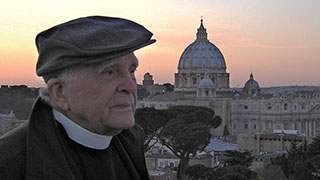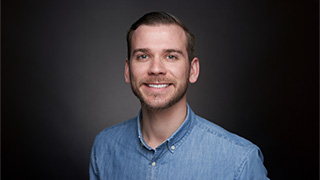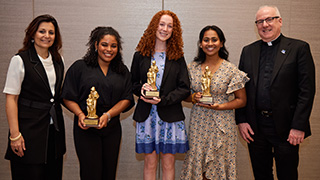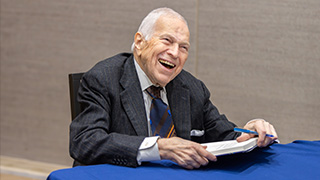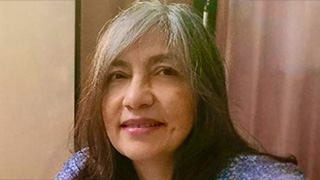Learning Religious Diplomacy - UPIC and Caritas Internationalis Delegates Speak to First Class in Religion, Race, and International Relations
Thursday, November 17, 2022
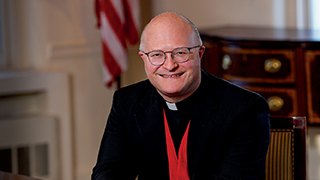
A photo of Rev. Brian Muzás, Director of the Center for UN and Global Governance Studies and Assistant Professor at the School of Diplomacy.
According to Aidan Houston and Peter Mandaville’s 2022 article for the US Institute of Peace "The Role of Religion in Russia’s War on Ukraine," the role played by religion in the Russian-Ukraine war is preceded by Putin’s claim that Ukraine is an inalienable part of Russian history, culture and spiritual space, a claim which most Ukrainians contend ignores a long history of Ukraine’s independence that is fundamental to their national identity. Tetiana Kalenychenko and Denys Brylov explain in the 2022 article for Georgetown University's Berkley Center for Religion, Peace and World Affairs "Ukrainian Religious Actors and Organizations after Russia’s invasion: The Struggle for Peace" that the response by Ukrainian theologians is an increasing development of a "theology of war" and a "theology of peace" rather than debating whether a given war is just. While the onslaught of Ukraine by Russia rages on, the timely introduction of the course in Religion, Race and International Relations at Seton Hall University’s School of Diplomacy and International Relations brings this debate closer to home in the classroom and allows students to engage academically and prepare on how to diplomatically deal with same in future careers while live events affect the very lives of peoples in Europe.
The combination of literature, academic scholarship, current political events, technological advancements via a choice for hybrid learning, and guest lectures has made the course an enormous success with the students earning excellent reviews at both the undergraduate and graduate level. The course was created by the School of Diplomacy’s faculty and the School’s Diversity, Equity, Inclusion and Justice Coalition which was formed to address the student outcry over the killing of George Floyd and Black Lives Matter movement by the School of Diplomacy and International Relations. The course was launched in the Spring semester of 2022.
As part of the graduate course in Religion, Race, and International Relations (DIPL6350), taught by Rev. Brian Muzás, Director of the Center for UN and Global Governance Studies and Assistant Professor at the School of Diplomacy, students learned from distinguished guest speakers. The first of the series included distinguished guests from the U.S. Pakistan Interreligious Coalition (UPIC), Rev. Robert Chase and Dr. Junaid Ahmad, and the second included Caritas Internationalis’ Joe Donnelly and Brianna Fitzpatrick.
Dr. Ahmad explained that UPIC, a US-Pakistan religious and intercultural coalition and part of the School of Diplomacy, aims to shatter harmful stereotypes by an action agenda leading to transformational change in both societies. He said, "It is an interfaith movement striving for peace against war post 9/11 backlash upon Muslims in the US, UPIC is essentially a civil society organization and a grassroots movement that addresses the religious divide." Reverent. Robert Chase explained the role that morals and ethics in faith play in politics. He imparted the lessons learned in religious diplomacy and advised the students, "Listen instead of telling what to do. Be genuine. Create intersection. Honor the other. Think the best first about the other person. Expect the unexpected. Treat potentially violent situations with tenderness."
As explained in the syllabus by Rev. Brian Muzás, "(the course offers) students the opportunity to explore the causes of the nature and consequences of the key issues that hinge on the interplay between religion and race in history at both the practical and theoretical levels." The course "deeply discusses the intersection of religion, race, and international relations throughout history by providing guiding questions that help students answer questions such as: What is the best way to live? What is the relationship between religion and society? Whether religion is a strictly private matter and how it affects the way we live together in society?"
The course promises a deep dive into the scholastic interplay between religion, race and international relations and prepares students to become policy game changers for future generations.
Categories: Education, Faith and Service, Nation and World

